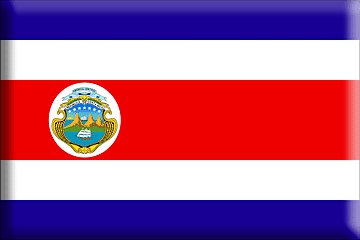In 2000, the Costa Rican Constitutional Court ruled that IVF in the country was unconstitutional because it violated the right to life of the unborn child.
Four years later, the pro-abortion Center for Reproductive Rights petitioned the Inter-American Commission on Human Rights to accept a case claiming that the human rights of two Costa Rican couples were violated by the ban.
Later, Costa Rica approved a new law prohibiting in vitro fertilization as consistent with Article 4 of the American Convention on Human Rights (or the “Pact of San José”), which explicitly protects life “from conception.” That law has since been taken to court and, today the pro-life Alliance Defense Fund law firm filed an amicus brief supporting it.
 According to Alliance Defense Fund Senior Legal Counsel Piero Tozzi, ADF pointed out that Costa Rica was acting within its sovereign capacity in outlawing the procedure, which almost always results in the destruction of “spare” human lives at the embryonic stage of development. ADF argued that the Court should grant Costa Rica a “margin of appreciation,” whereby it may decide the best way to protect the life of a developing human being, and that the Court should not exceed its authority by intruding upon an area that is solely within the competence of Costa Rica.
According to Alliance Defense Fund Senior Legal Counsel Piero Tozzi, ADF pointed out that Costa Rica was acting within its sovereign capacity in outlawing the procedure, which almost always results in the destruction of “spare” human lives at the embryonic stage of development. ADF argued that the Court should grant Costa Rica a “margin of appreciation,” whereby it may decide the best way to protect the life of a developing human being, and that the Court should not exceed its authority by intruding upon an area that is solely within the competence of Costa Rica.
“No one should try to usurp the sovereign right of a nation to determine the best way to protect life. The court should not exceed its authority by intruding upon an area of domestic policy that is solely Costa Rica’s to decide,” he said.
In other words, the Court should not impose a supranational Roe v. Wade-type decision on a sovereign nation, while disregarding the explicit text of the governing document.
Tozzi talked amore about the case and the pro-life protections Costa Rica guarantees to unborn children:
Unique among human rights treaties, the Pact of San José explicitly recognizes the legal personhood of the unborn and requires that the State, in general, defend life from the moment of conception. This reflects the values of a majority of states of the Americas that have ratified the treaty, many of which protect the unborn person’s right to life in their laws (as does Costa Rica) and in their constitutions (i.e., Chile, the Dominican Republic, Ecuador, El Salvador, Guatemala, Honduras, Jamaica, Paraguay and Peru).
The case concerns Costa Rican couples alleged to be “victims” because they could not access IVF treatment in Costa Rica. It is believed that this action is being promoted as a test case by international pro-abortion groups to weaken the explicit protections of unborn life contained in the treaty and to advance an anti-life agenda in the region.
Under the Inter-American system, a complainant first must file a petition with the Inter-American Commission on Human Rights, which must issue a non-binding merits report, before a case can proceed to the Inter-American Court, which adjudicates whether a violation of the treaty has occurred. Unfortunately, in recent years, the Inter-American Commission has become radicalized, and certain of its members have been outspokenly pro-abortion, despite the explicit wording of the Pact of San José.
In this case, the Commission completely ignored the defense of Costa Rica, which was based on Article 4 with its “from conception” provision. Instead, it held Costa Rica to have violated ancillary provisions concerning privacy and family life and equal protection.
CLICK LIKE IF YOU’RE PRO-LIFE!
In its non-binding merits report issued last summer, the Commission also directed that Costa Rica should change its law on in vitro fertilization, a recommendation which far exceeded its authority. Following this, Costa Rica’s legislature rejected by one vote a proposal to alter its law. In advance of this vote, ADF submitted an opinion letter to every member of Costa Rica’s legislature pointing out that Costa Rica was within its right to protect unborn life by outlawing the IVF procedure, consistent with its obligations under the Pact of San José.
Following Costa Rica’s affirmation of its existing law, the Inter-American Commission commenced the present action. At the end of last month, Costa Rica filed its response, rejecting the demand that it alter its law and asserting its sovereign right to defend life as being completely consistent with its treaty obligations. By submitting its brief, ADF stands united with the people of Costa Rica in their commitment to defending unborn life, the principle of sovereignty and the importance of rule of law.
ADF has worked with a number of allies throughout the region, including Alvaro Paul of Chile, the principal author of the amicus brief, and pro-life Congresswoman Rita Chaves Casanova. Joining ADF on the brief was Americans United for Life and the Center for Legal Studies at C-FAM.







